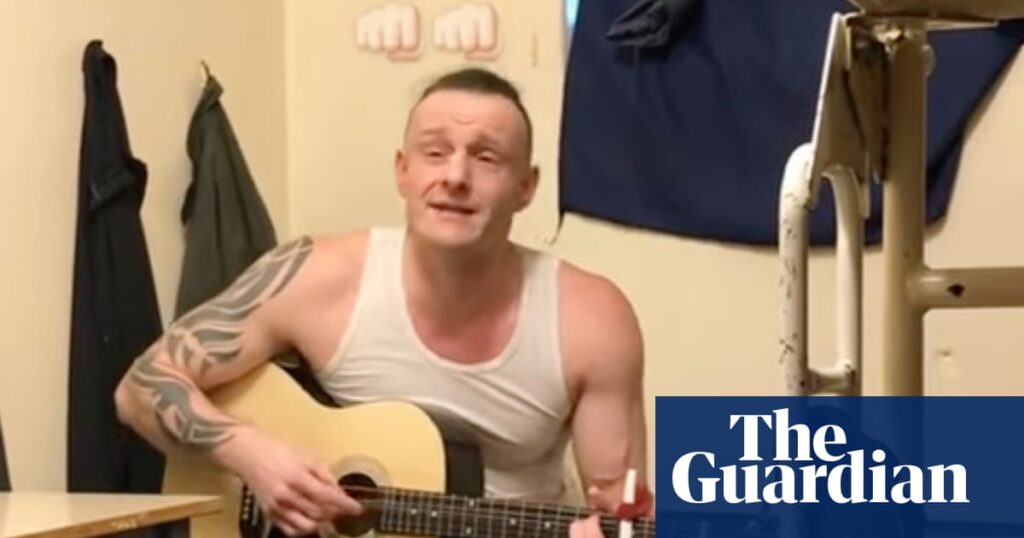The trial of an alleged escapee who spent hours on the roof of a high-security prison in his underpants is set to be the first time the stress caused by indeterminate sentences can be used as a legal defence.
Joe Outlaw is due to stand trial on Monday for climbing on to the roof of HMP Frankland in Durham in June 2023 in protest at the imprisonment for public protection (IPP) sentence he and others are serving.
The 38-year-old has been in jail for 13 years, much of that in isolation, after receiving an IPP sentence for robbing a takeaway at gunpoint in 2011. He says he does not remember the crime because he was drunk and high on drugs.
Two months before his Durham protest, Outlaw staged a 12-hour sit-in on the roof of Strangeways, HMP Manchester, where he wrote “FREE IPPZ” in paint.
He is due to be tried later for “escape from lawful custody” in allegedly damaging the roof of Strangeways and for starting a fire in his cell as part of a suicide attempt.
The case raises once again the issue of IPPs, which 2,544 prisoners were still serving in March despite the sentences being abolished in 2012. The legislation that ended what campaigners describe as a cruel system was not retrospective.
A spokesperson for Reform and Rebuild, a prison advocacy group which is set to give evidence in the trial, said it was “well overdue” for courts to take into account the stress caused by IPPs.
“This sentence has led to a lot of destructive behaviour among prisoners,” the organisation said.
Cherrie Nichol, a campaigner whose brother is serving an IPP, said that under the previous Conservative government many prisoners grew “absolutely desperate” when they were told they would not be able to be resentenced.
“There were a few of the IPP prisoners who then took their lives because they decided that they were never going to get out,” she said.
“Nobody’s been resentenced yet, but we are looking at human rights. That’s another battle but we will get it. We’ll definitely get it because it’s cruel and inhumane. I think if we don’t keep fighting and jumping up and down, then it’ll just be forgotten.”
Campaigners have made some progress over the years, for example in shortening the licences of those released from IPPs from 10 years to three years. Nichol said this “meant some people could go on holiday with their families and have a life again, because 10 years is a long time after you’ve suffered”.
But she added: “The government won’t admit they’re wrong. So we have to go around, trample around things delicately.”

